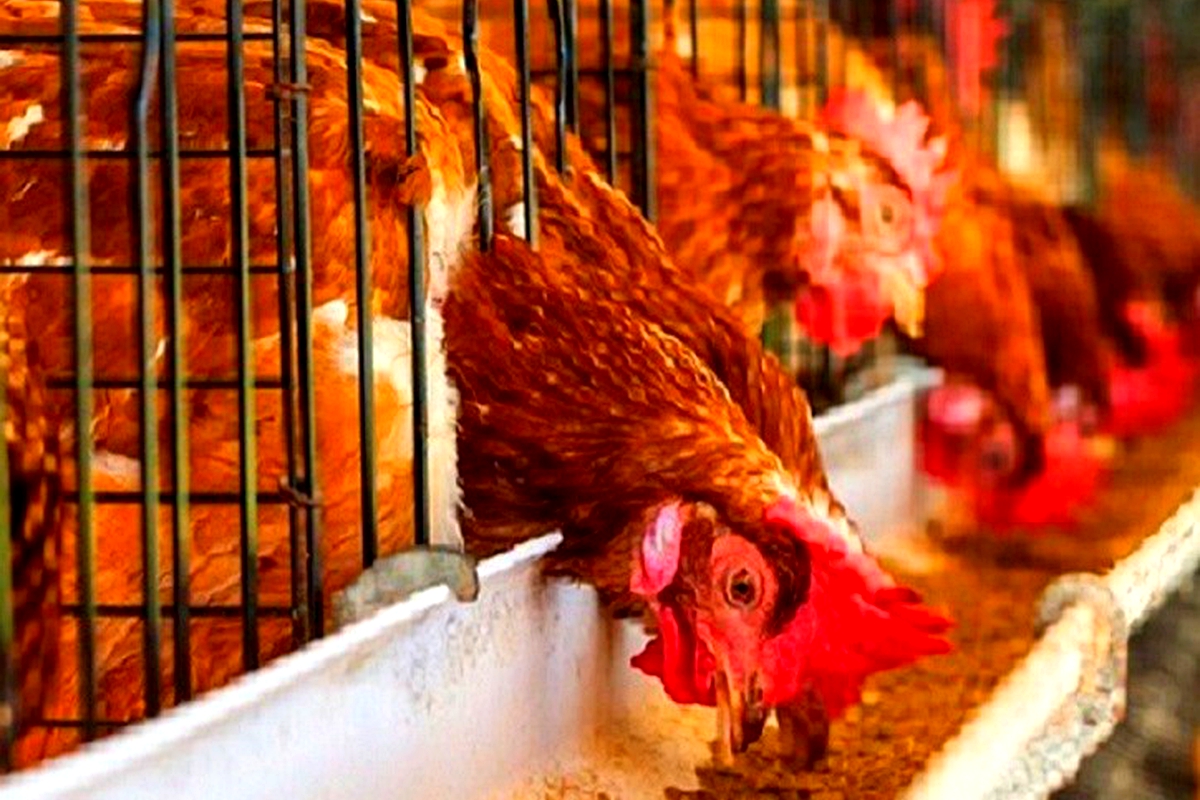IMPORTING live chicken and viable eggs into Lesotho is becoming increasingly disorganised, and farmers are claiming unfair treatment from the government.
business
Jan. 26, 2024
RETHABILE MOHONO
6 min read
Local poultry sector plunges into fresh chaos

Story highlights
The dispute surrounding the importation of chicken into the country from South Africa remains unresolved, as small scale poultry entrepreneurs voice their discontent with the government’s partiality towards them in comparison to larger businesses when it comes to the procurement and selling of chicken.
Their dissatisfaction stems from the government’s move to restrict importation to frozen chicken exclusively, after Lesotho imposed a four-month embargo on poultry items.
The ban was implemented due to avian influenza, commonly known as bird flu, which struck some areas of South Africa last year.
Avian influenza is a viral infection that can affect both birds and humans.
Symptoms of bird flu in humans include cough, diarrhoea, respiratory difficulties, fever, headache, muscle aches, malaise, runny nose, and sore throat. The virus is transmitted to humans through contact with infected bird faeces, nasal secretions, or secretions from the mouth or eyes.
To ensure the safety and security of Lesotho's poultry industry, the Ministry of Agriculture and Food Security, specifically its Department of Livestock Services, took this necessary action. As a result, all import permits for poultry and poultry products were immediately invalidated.
However, local poultry supply associations stated on Wednesday that the lifting of the ban on frozen chicken does not benefit local chicken suppliers but rather benefits large retailers.
Despite their efforts to persuade the government to lift the ban, the importation of fertile eggs and chicks is still prohibited in the country.
According to the association’s chairperson, Mantsane Ntekoa, they initially wrote a letter to the Prime Minister's office regarding the ban on poultry products in Lesotho, where they appealed to Prime Minister Sam Matekane, to revoke the ban.
“The Ministry of Agriculture urged us to import poultry products from other countries following South Africa's "red alert" status by the World Organisation of Animal Health,” she said.
Despite their efforts to find alternative sources in neighbouring countries, including Eswatini, they were unsuccessful.
"We were then advised to visit Eswatini to learn how they run and monitor the poultry business, but after our return with the Ministry of Agriculture under Livestock, there was still no clear solution,” Ntekoa said.
Instead of the ministry coming up with a favourable solution for the entire nation, she said the government last week lifted the ban on frozen chicken only.
According to the Minister of Agriculture, Food Security, and Nutrition, Thabo Mofosi, there is a new agreement between the two countries that commenced last week.
The agreement is to select places from which Lesotho will import frozen chicken in South Africa.
He said both South Africa and Lesotho health specialists will coordinate the process, while South Africa will have to issue a certificate when it adds more sourcing places.
“It is, however, still risky to import live chickens into the country, which is why frozen chicken was found eligible. We have also selected the Southern African Development Community (SADC) countries that will assist in this situation, excluding S.A.
“Both eSwatini and Zambia are the right countries to import from to assist Basotho. eSwatini is able to produce its own poultry products without relying on other countries, except for fertile eggs, which it also imports from South Africa.
“To enable Basotho to produce their own chicken as well as other countries, we have included in the 2024/2025 budget speech that farmers and individuals are met half-way in terms of costs and transportation while importing chicks.
“We are already in negotiations with the Ministry of Finance to see to it that they include all that. Also, each district will have to issue a list of poultry producers to enable productivity,” he said.
Mofosi added that the marketplace is wide open at the moment, and many franchises in the country have already stated how much chicken they need.
For instance, he said KFC needs about 190 000kg of chicken in about 10 months and 120 000kg between the months of November and December, which is the peak.

Prime Minister Sam Matekane
Enjoy our daily newsletter from today
Access exclusive newsletters, along with previews of new media releases.
At the rate of M36 a kg (which has been the average price of chicken lately), it means the economy lost more than M4 million maloti to lost business for KFC franchises alone between November and December.
He emphasised that it is not that Basotho are unable to produce their own poultry products; it is that they lack guidance and training and handle finances recklessly.
On the other hand, the Ministry of Agriculture, Food Security, and Nutrition Principal Secretary (PS) Moshe Mosaase concurred that the ban had a devastating impact on the economy overall.
Citing the bleeding Lesotho Revenue Services (LRS) incurred due to losses in potential Value Added Tax (VAT) revenue, he said in an interview yesterday that, for instance, if a farmer imports around a million chickens or chicks, the tax man earns about M150 000 in VAT; therefore, such losses, if properly quantified, are very significant to the economy. He said some farmers in Lesotho can single-handedly order up to 25, 000 chicks to breed and sell; therefore, a lot of revenue has been lost since the October ban.
He said Basotho are unable to produce their own chicken due to the expensive value chain that comes with it; from feeding to having an abattoir, the entire chain is expensive. In other words, Lesotho’s value chain in chicken production is yet to develop since the nation imports almost everything in the chain, from fertilised eggs or day-old chicks right up to chicken feed itself.
Thankfully, Mosaase revealed that the ministry has added a comprehensive poultry policy to the 2024–2025 budget, which includes incentives to assist farmers in attracting investors, which in the long run would lead to Basotho being able to produce their own chicken and establish a sustainable value chain.
“Chicken is one of the proteins that cost less; therefore, without it, everything has been slow. The ministry has been working hard looking for a way forward to find solutions in the matter,” he said. Although the government has lifted the ban after three months, evidence is pervasive that it brought untold disaster as the entire country went into the festive season without chicken, the most accessible relish of ready choice for many.
In 2021, reports estimated that Lesotho imported US$38.9 million (more than M730 million) in poultry meat, becoming the 93rd largest importer of poultry meat in the world. In the same year, poultry meat was the third most imported product in Lesotho.






